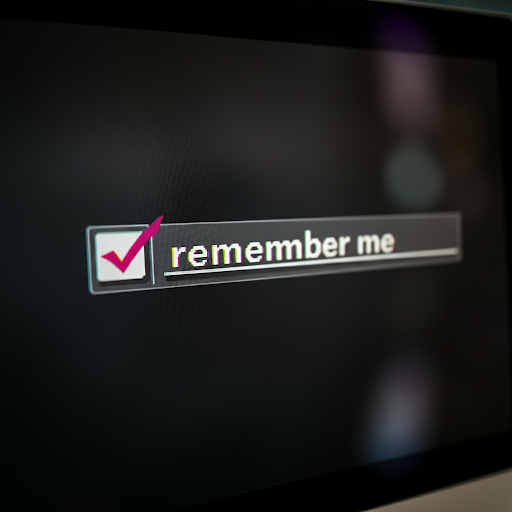
That cheeky little “Remember Me” checkbox sure is convenient—one click and you breeze past the login screen forever. But before you let your browser tuck your credentials under its digital mattress, ask yourself: do you really want anyone who grabs your device to waltz into your accounts? Let’s dig into what happens when you click “Remember Me,” why it’s a liability in the wrong hands, and how to use it without selling your privacy short.
What Does ‘Remember Me’ Actually Do?
When you tick that box, the site drops a cookie—a tiny note saved in your browser that shouts, “Hey, this is [Your Name]!” The next time you return, the site checks the note and logs you in automatically. Neat, right? But like a dog-eared library book left lying around, those cookies can be picked up, read, and even faked by anyone who stumbles onto your device or exploits a browser flaw.
The Risks of Clicking ‘Remember Me’
Sure, it slashes a few seconds off your morning routine—but it hands over your front-door key if:
- Your Device Gets Snatched
Lose your phone or laptop, and the thief doesn’t need your password to empty your email, bank, or shopping accounts. - You Share or Borrow Computers
On a friend’s laptop or public terminal? That cookie sticks around, giving the next user a free pass into your profiles. - Browser Glitches and Gaps
Outdated browsers or loose privacy settings make it trivial for hackers to clone or hijack your cookies—no PhD required. - You Forget to Rotate Passwords
Always logged in means you rarely type your password—so you’re less likely to change it. One breach could domino into a nightmare.
When It’s (Relatively) Safe to Tick the Box
Not every site needs Fort Knox-level armor. There are times when “Remember Me” is low-risk:
- On Your Locked-Down Personal Device
If only you hold the PIN, password, or fingerprint key to that gadget and it’s kept up to date, a cookie is less of an open invitation. - For Low-Stakes Accounts
Streaming services, foodie blogs, or news sites that don’t house your bank info—if someone sneaks in, the worst they’ll do is binge your watchlist. - When You’ve Got Two-factor authentication (2FA) in Place
2FA is an extra lock: after you enter your password (factor one), the site asks for a second proof—like a one-time code sent to your phone or generated by an authentication app (factor two). Even if someone steals your cookie and password, they can’t get in without that second factor.
How to Stay Secure While Using ‘Remember Me’
You don’t have to ditch convenience—just follow these no-BS moves:
- Lock Your Device Like Fort Knox
Use a strong PIN, complex password, or biometrics (fingerprint or face ID). A locked device turns a stolen gadget into a useless paperweight. - Pick and Choose Your Cookies
Reserve “Remember Me” for non-sensitive sites. Email, banking, or medical portals? Always leave that box unticked. - Clear Cookies Regularly
Think of it as digital housekeeping: delete old cookies every week or two so stale login notes don’t pile up. - Embrace a Password Manager
Ditch the browser’s sticky notes. A dedicated password manager encrypts your credentials and only fills them in when you authorize—no secret crumbs left behind. - Enable Two-Factor Authentication Everywhere
Layer your locks: after your password, you’ll need a code texted or emailed to you, or generated by an authenticator app. It’s the equivalent of a double-deadbolt on your digital door. - Skip It on Shared Devices
Public terminals or borrowed machines? Always log out and leave “Remember Me” unticked—no excuses.
Conclusion
Clicking “Remember Me” hands your browser a backstage pass—but in the wrong hands, it’s VIP access to all your private data. By locking down your device, clearing cookies, and layering up with two-factor authentication and password managers, you keep the convenience without sacrificing security. Need more no-fluff guidance?
